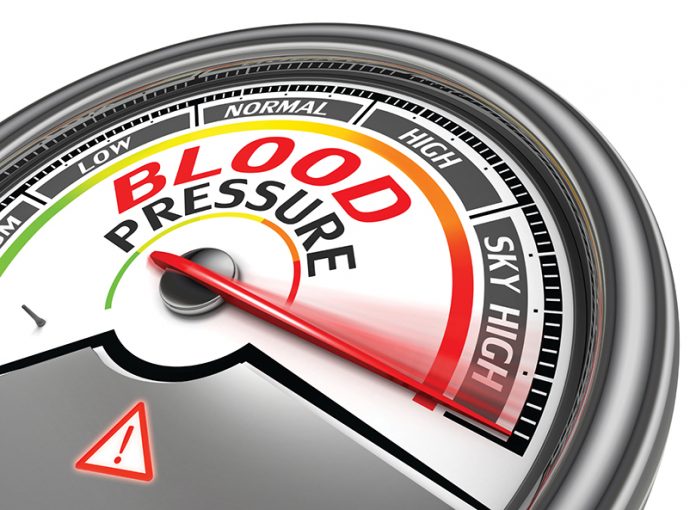Blood pressure is recorded with two numbers. The systolic pressure (higher number) is the force at which your heart pumps blood around your body.
The diastolic pressure (lower number) is the resistance to the blood flow in the blood vessels. They’re both measured in millimeters of mercury (mmHg).
As a general guide:
- high blood pressure is considered to be 140/90mmHg or higher
- ideal blood pressure is considered to be between 90/60mmHg and 120/
- low blood pressure is considered to be 90/60mmHg or lower
A blood pressure reading between 120/80mmHg and 140/90mmHg could mean you’re at risk of developing high blood pressure if you don’t take steps to keep your blood pressure under control.
Risks of high blood pressure
If your blood pressure is too high, it puts extra strain on your blood vessels, heart and other organs, such as the brain, kidneys and eyes.
Persistent high blood pressure can increase your risk of a number of serious and potentially life-threatening conditions, such as:
- heart disease
- heart attack
- strokes
- heart failure
- peripheral arterial disease
- aortic aneurysms
- kidney disease
If you have high blood pressure, reducing it even a small amount can help lower your risk of these conditions.
Check your blood pressure
The only way of knowing whether you have high blood pressure is to have a blood pressure test.
All adults over 40 are advised to have their blood pressure checked at least every five years. Getting this done is easy and could save your life.
You can get your blood pressure tested at a number of places, including:
- at your GP surgery
- at some pharmacies
- as part of your NHS Health Check
- in some workplaces
You can also check your blood pressure yourself with a home blood pressure monitor.
Causes of high blood pressure
It’s not always clear what causes high blood pressure, but certain things can increase your risk.
You’re at an increased risk of high blood pressure if you:
- are over the age of 65
- are overweight or obese
- are of African or Caribbean descent
- have a relative with high blood pressure
- eat too much salt and don’t eat enough fruit and vegetables
- don’t do enough exercise
- drink too much alcohol or coffee (or other caffeine-based drinks)
- smoke
- don’t get much sleep or have disturbed sleep
Making healthy lifestyle changes can help reduce your chances of getting high blood pressure and help lower your blood pressure if it’s already high.
Reduce your blood pressure
The following lifestyle changes can help prevent and lower high blood pressure:
- reduce the amount of salt you eat and have a generally healthy diet
- cut back on alcohol you drink too much
- lose weight if if you’re overweight
- exercise regularly
- cut down on caffeine
- stop smoking
- try to get at least six hours of sleep a night
Some people with high blood pressure may also need to take one or more medicines to stop their blood pressure getting too high.
Medicines for high blood pressure
If you’re diagnosed with high blood pressure, your doctor may recommend taking one or more medicines to keep it under control.
These usually need to be taken once a day.
Common blood pressure medications include:
- ACE inhibitors – such as enalapril, lisinopril, perindopril and ramipril
- angiotensin-2 receptor blockers (ARBs) – such as candesartan, irbesartan, losartan, valsartan and olmesartan
- calcium channel blockers – such as amlodipine, felodipine and nifedipine or diltiazem and verapamil.
- diuretics – such as indapamide and bendroflumethiazide
- beta blockers – such as atenolol and bisoprolol
- alpha-blockers – such as doxazosin
- renin inhibitors – such as aliskiren
- other diuretics – such as amiloride and spironolactone
The medication recommended for you will depend on things like how high your blood pressure is and your age. If you would like to make an appointment to see a doctor about high pressure or if you should have any other query then please contact Phyathai Sriracha Hospital on Tel: 087 – 100 – 0990 Email: [email protected] www.phyathai-sriracha.com










